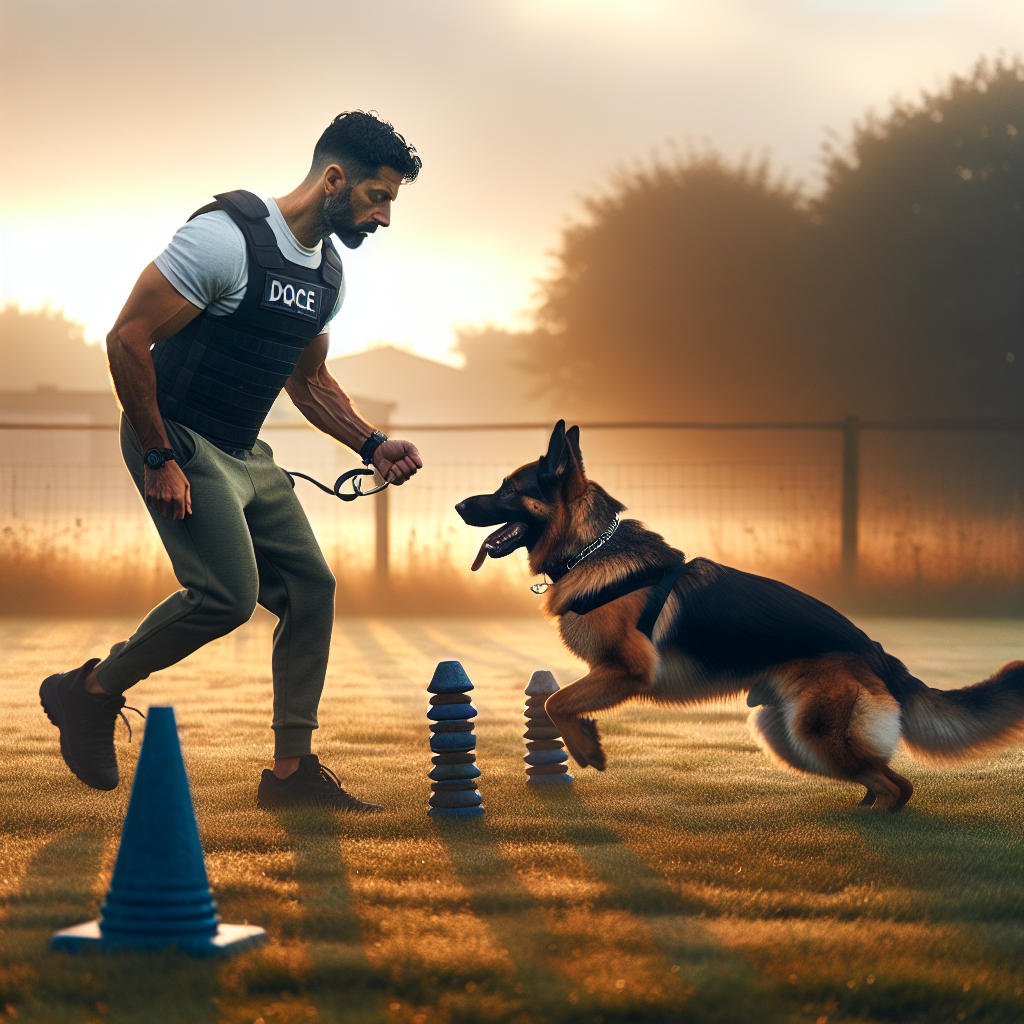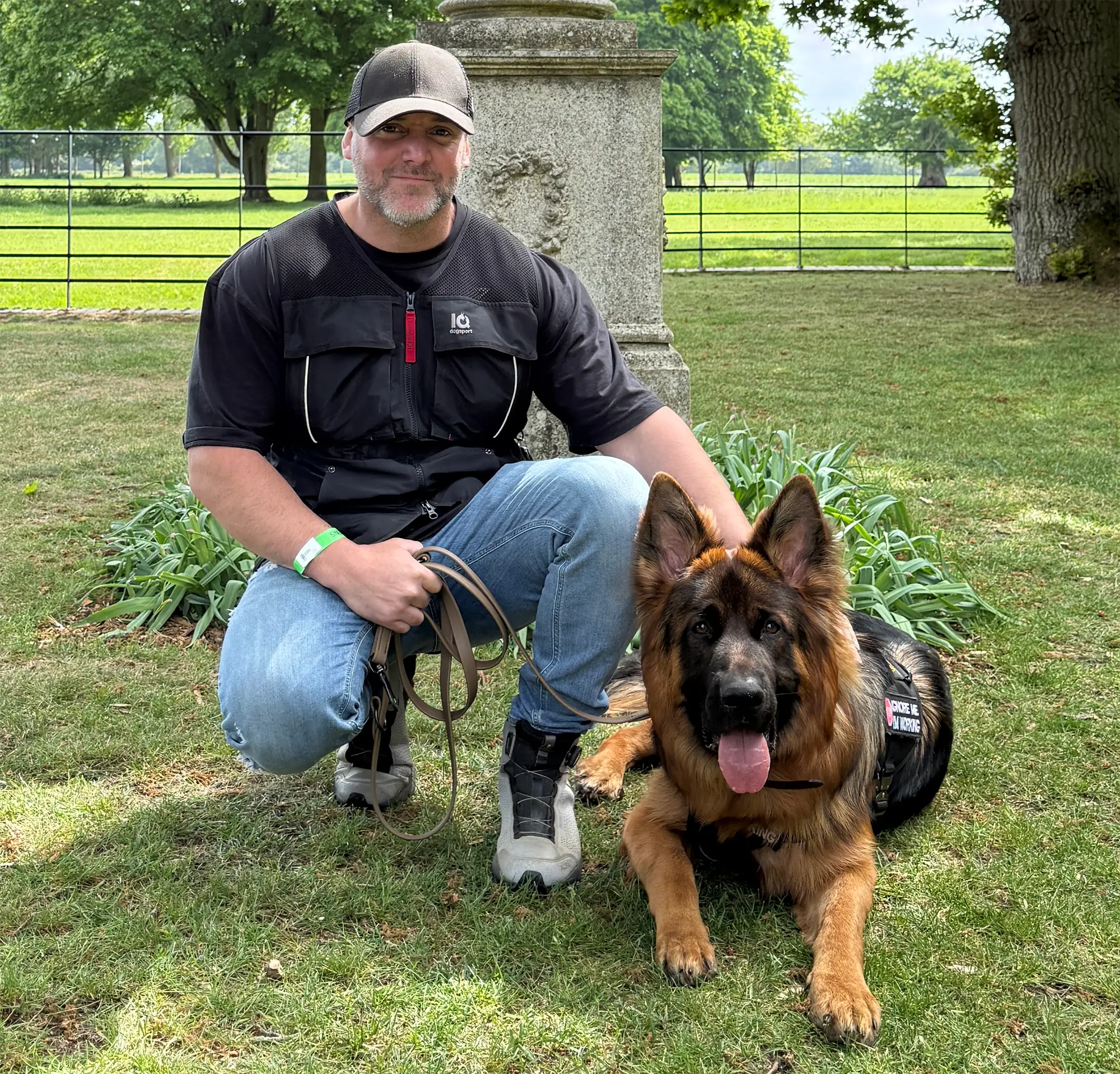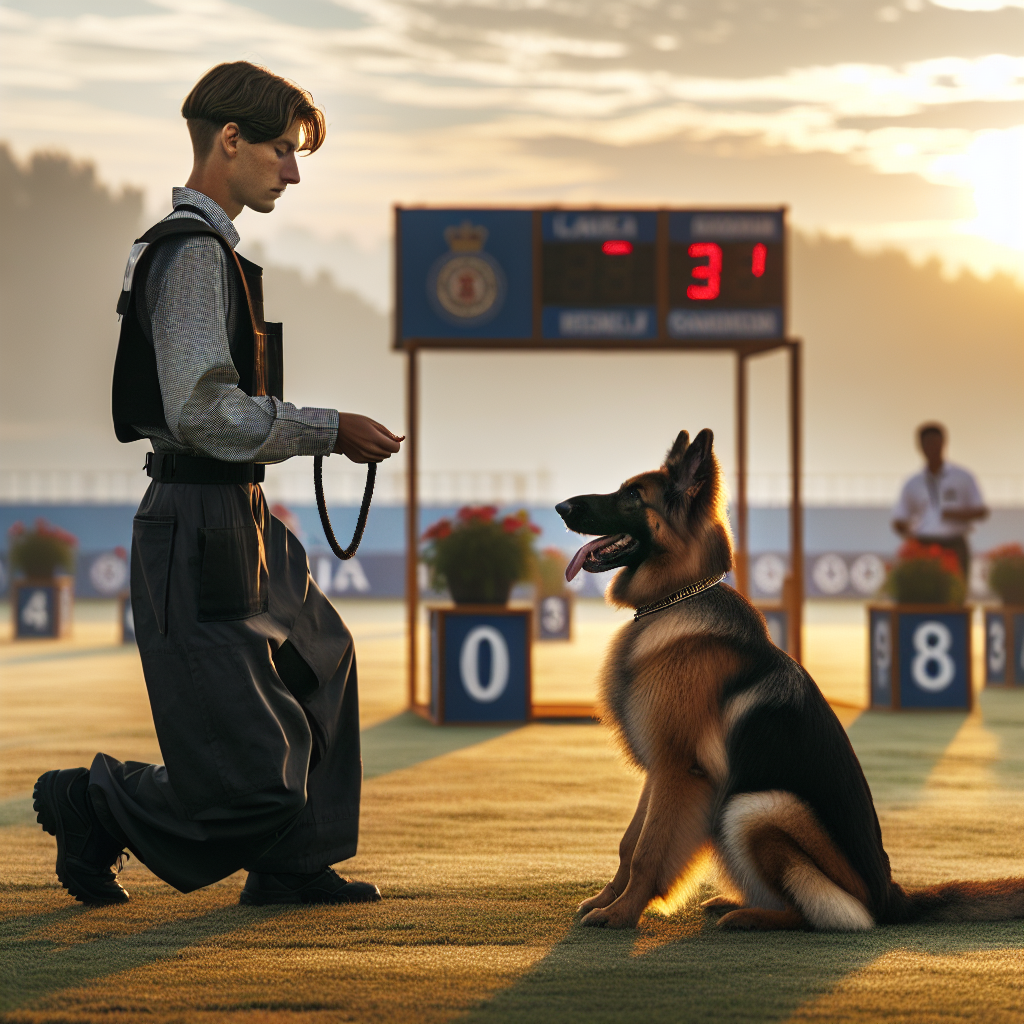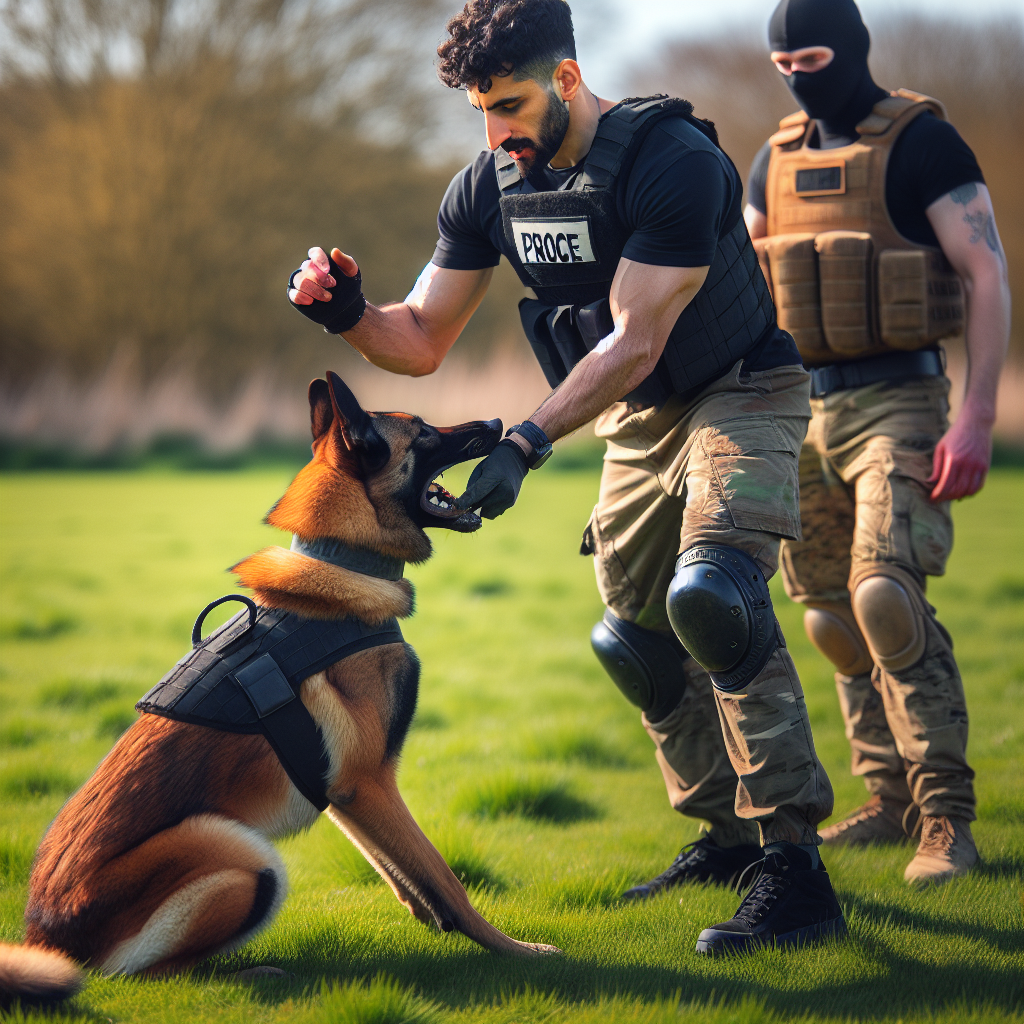Training Weekly Plans for Sport Dogs

Why A Weekly Plan Matters For Sport Dogs
Serious performance does not come from random sessions. It comes from structured work that builds habits, fitness, and clarity over time. Training weekly plans for sport dogs give you that structure. With the Smart Method, every week has a clear purpose, balanced stress and recovery, and measurable goals. As a Smart Master Dog Trainer, I use this approach in IGP and advanced obedience to produce dogs that are calm, driven, and reliable in real life and under pressure.
Sport is unforgiving. If your dog has gaps in clarity, conditioning, or confidence, the field will expose them. Training weekly plans for sport dogs make your progress predictable. You know what to train, when to push, and when to back off. You also know exactly how each session moves you toward trial readiness or your next milestone.
The Smart Method Behind Every Plan
Smart Dog Training uses one system across all programmes. The Smart Method builds behaviour through five pillars that guide your weekly plan:
- Clarity: Your dog must always know what earns reward and what ends pressure.
- Pressure and Release: We pair fair guidance with immediate release and praise. This creates accountability without conflict.
- Motivation: Rewards create energy and willingness. We build drive, then channel it into control.
- Progression: We layer distraction, duration, and difficulty step by step until behaviour holds anywhere.
- Trust: Training strengthens the bond. Calm, confident teams perform better on and off the field.
Every part of training weekly plans for sport dogs follows these pillars. They shape your warm ups, your skill blocks, and your recovery days.
Set Your Baseline Before You Plan
Before you write a plan, you need a baseline. Smart Dog Training starts with a full assessment to remove guesswork. We test obedience, grip and drive, tracking or scent work, fitness, and resilience under light stress. We map strengths and gaps. That baseline shapes the first four to six weeks of training weekly plans for sport dogs.
- List current cues and markers. Confirm your dog understands each one under light distraction.
- Score the key sport skills. For IGP this means heelwork, positions, retrieves, tracking, and protection elements.
- Check arousal control. Can your dog switch from drive to stillness on cue and hold position until release
- Review fitness. Look at cardio, core strength, joint health, and recovery response after a hard session.
- Note environmental stability. Surfaces, weather, helpers, equipment, and noise all matter.
With this snapshot, training weekly plans for sport dogs become targeted and efficient.
How To Structure A Week The Smart Way
A strong weekly plan balances intensity and recovery while keeping skills sharp. Smart Dog Training uses a four part rhythm across most teams:
- Two high focus days for your primary goals
- Two moderate days for skill refinement and conditioning
- One to two light days for recovery and patterning
- One full rest day with active decompression
Training weekly plans for sport dogs must fit your calendar and your field access. The rhythm can shift around life, but the balance stays. Never stack three heavy days together.
Daily Session Flow That Drives Results
Each session follows a simple flow. This is where the Smart Method becomes practical and repeatable:
- Warm Up: Nervous system on, muscles warm, engagement high
- Drive Build: Short games that create energy and focus
- Skill Block A: Your most important behaviour while your dog is fresh
- Short Reset: Calm breathing, posture, and a neutral position
- Skill Block B: Secondary behaviour or proofing element
- Cool Down: Loose lead walk, light mobility, calm marker and release
Keep sessions short and sharp. End with success. Training weekly plans for sport dogs work because every rep has purpose, pacing, and clean markers.
Warm Up Routines That Prime Performance
A good warm up prevents injury and creates clarity. Smart Dog Training uses the same pattern before each effort so the dog knows work is coming:
- Engagement: Name recognition, eye contact, and simple hand targets
- Body Prep: Sit to stand to down transitions, slow heel arcs, gentle backing up
- Activation: Quick position changes, micro heeling for precision, a short tug or food chase
- Clarity Check: One or two easy reps of the first skill you will train
When you repeat this pattern across training weekly plans for sport dogs, arousal stays predictable and skills come online faster.
The Obedience Core You Should Touch Every Week
Precision fades if you do not maintain it. Smart Dog Training keeps these obedience elements on rotation across the week:
- Heelwork mechanics and attitude
- Position changes with strict criteria
- Recalls with distraction and varied reward placement
- Stationing on a bed or platform for control in drive
- Impulse control around toys, food, and motion
Use pressure and release to define boundaries, then pay generously for compliance. In training weekly plans for sport dogs, this balance keeps energy high and errors low.
Drive Building Without Losing Control
Drive is your engine. Control is your steering. Smart Dog Training blends both so that the dog is fast to start and quick to settle:
- Two to three short tug games per week that end on a clear out command
- Food chases with stillness before release
- Prey movement patterns that flow into heel or sit
- Calm holds after a win to teach recovery on cue
Training weekly plans for sport dogs should show a clean on switch and a clean off switch. Mark both clearly.
Conditioning And Recovery That Prevent Injuries
Sport dogs are athletes. Smart Dog Training programmes include conditioning and recovery blocks:
- Strength: Controlled hill walks, rear end awareness, and core holds
- Cardio: Interval trots, figure eights, and short sprints on safe footing
- Mobility: Dynamic range drills and gentle decompression walks
- Rest: At least one full day off in each week with calm enrichment
Plan recovery just like training. In training weekly plans for sport dogs, a fresh dog learns faster and holds criteria longer.
Example Weekly Template You Can Adapt
Use this as a model. Adjust volume to your dog and field access. Keep sessions short if your dog is young or new to the work.
- Monday High Focus: Warm up, heelwork power set, positions under motion, cool down
- Tuesday Moderate: Tracking fundamentals, article indication, easy conditioning
- Wednesday Light: Stationing, focus games, mobility, short decompression walk
- Thursday High Focus: Retrieve skills, send away patterning, proofing on surfaces
- Friday Moderate: Protection line work or drive games, obedience cool down
- Saturday Light: Field walk, environmental exposures, engagement only
- Sunday Rest: Full rest with calm enrichment and no formal rules
This is how training weekly plans for sport dogs stay balanced while pushing progress each week.
Tracking And Scent Work Within The Week
Tracking rewards patience and precision. Smart Dog Training teaches a quiet, methodical track built on clarity and motivation:
- Lay short, fresh tracks two to three times per week
- Mark every correct nose placement with calm reward
- Use pressure and release through the line to prevent cutting corners
- End before the dog fades, then rest
Training weekly plans for sport dogs that include tracking must protect emotional balance. Keep arousal low and criteria high.
Protection And Bite Development Done Responsibly
Protection sport requires expert guidance. Smart Dog Training builds grips, targeting, and control without conflict. Work with a qualified Smart Master Dog Trainer to ensure safe progression and correct mechanics. Within training weekly plans for sport dogs, protection elements are short, focused, and always end with clear outs and resets.
- Foundation: Calm entries and full, calm grips
- Control: Outs that release into heel or station
- Progression: Add pressure slowly and pair with clear release
- Trust: End sessions with success and neutrality
Proofing That Holds Up In Trials
Proofing means your dog performs under distraction, duration, and distance. Smart Dog Training layers these elements with a single variable at a time:
- Add one distraction after you confirm fluency
- Hold duration only after the dog is calm at baseline
- Increase distance in small steps with clean markers
Training weekly plans for sport dogs should include at least two short proofing blocks per week focused on one variable at a time.
Measuring Progress Each Week
If you do not measure, you guess. Smart Dog Training uses simple metrics to keep you honest:
- Reps to criteria without handler help
- Latency to respond
- Error types and when they occur
- Recovery time from arousal to stillness
- Grip quality or track accuracy if relevant
Review these after each session. Training weekly plans for sport dogs evolve from the data. You will know when to add difficulty or when to rebuild clarity.
Troubleshooting Common Sticking Points
Even with a plan, you will hit plateaus. Smart Dog Training resolves them with targeted adjustments:
- If your dog is frantic, reduce session length and reward calm holds
- If precision drops, lower arousal and rebuild criteria with higher rate of reinforcement
- If the out fails, teach calm possession games and trade on cue, then layer mild pressure and immediate release
- If heelwork attitude fades, increase play value and reduce formal steps for a week
- If tracking is messy, slow down the pace, shorten the track, and mark each correct footstep
Use these resets inside training weekly plans for sport dogs to protect confidence while restoring standards.
Handler Skills That Make Plans Work
Your timing and body language set the tone. Smart Dog Training focuses on clean handling:
- Deliver cues with the same words and posture every time
- Mark the instant of correct behaviour and pay where you want the dog to be
- Apply pressure only to guide, never to punish, and release the moment the dog tries
- Keep sessions short and end on a win
Cleaner handling makes training weekly plans for sport dogs more effective in less time.
Weekly Review And Reset
At the end of each week, review results, update goals, and reset your plan. Smart Dog Training uses a simple three part review:
- What improved This guides your next progression step.
- Where did criteria slip This tells you where to rebuild clarity.
- How was recovery This confirms the balance of work and rest.
Plan the next seven days based on this review. Training weekly plans for sport dogs become a loop of assess, train, measure, and refine.
Ready to turn your dog’s behaviour around? Book a Free Assessment and connect with a certified Smart Master Dog Trainer - available across the UK.
FAQs On Training Weekly Plans For Sport Dogs
How many days per week should a sport dog train
Most teams thrive on four to five work days, one to two light days, and one full rest day. Training weekly plans for sport dogs should never stack too many heavy days. Balance is key.
How long should each session be
Short is best. Ten to twenty minutes per block with resets between blocks. Two to three blocks per day is plenty. In training weekly plans for sport dogs, quality beats volume.
When should I do conditioning work
Place conditioning on moderate or light days so it does not steal focus from precision work. Keep a full rest day. Smart Dog Training uses gentle mobility after hard sessions.
How do I prevent over arousal during protection
Use clear outs, short reps, and calm resets. Pair pressure with immediate release when the dog yields. Work under a Smart Master Dog Trainer to keep mechanics sound.
What if my dog loses precision in heelwork
Lower arousal, shorten the work, increase reward frequency, and rebuild attitude through play. Training weekly plans for sport dogs should rotate micro heel drills two to three times weekly.
How do I know when to progress
Progress when your dog meets criteria at least eight out of ten reps with clean latency and stable emotion. If errors rise, step back and rebuild clarity before you add pressure or distraction.
Conclusion Build A Week That Wins
Great performances are built one week at a time. Training weekly plans for sport dogs turn your goals into daily actions you can measure. With the Smart Method, you get clarity, motivation, progression, and trust woven into every session. You will know when to press forward and when to hold steady. You will protect your dog’s body and mind while building the skills that stand up under pressure. If you want a faster path to results, Smart Dog Training will guide you with a plan tailored to your dog, your sport, and your calendar.
Your dog deserves training that truly works. With certified Smart Master Dog Trainers (SMDTs) nationwide, you'll get proven results backed by the UK's most trusted dog training network. Find a Trainer Near You



